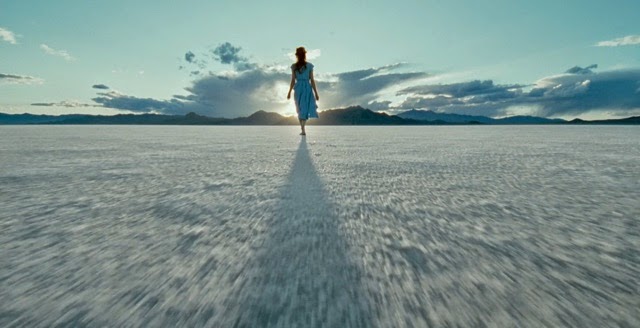
City of God (Fernando Meirelles, 2002)
March 22, 2010One of the most interesting aspects of South-American cinema is its post-colonial perspective. Having lived myself and being raised in a Third-world country, I can identify and relate to the plight of South-American characters, living up to their (displaced) roots while fighting their imposed colonial heritage. I’ve seen firsthand the social stratification that the colonial rule instilled into the indigenous or uprooted population, a social perspective that is deeply explored in that filmography. Macunaïma appears to be one of those social relevant films, a satire born of the will to change and of the social situations of the times. In the aftermath of the coup-within-the-coup of December 1968, filmmakers must hide their social criticism—become smugglers, to use the terms of Martin Scorsese—within the framework of their oeuvre. In his essay, Robert Stam emphasizes the racial discourse conveyed in the film. He points out, as reported by Randal Johnson, that a certain sequence was occasionally misread as racist by North American audiences. I have to admit having read parts of the film the same way.
The picture that gets across by viewing Macunaïma isn’t a flattering one. In Haiti, the social class structure is a consequence of its colonial past. All my life, I would be ignored because of the dark complexion of my skin. I saw people around me apply corrosive skincare products to their face to appear lighter. Friends would congratulate me for having a light-skinned girlfriend for the “beautiful” children we would produce together. I think Macunaïma, instead of destroying such social myths, reinforces them by the imagery it uses. When does Macunaïma become white? When he’s under the influence (becoming a prince!) or when he’s washed in water. The mode of transformation is as important, to me, as the transformation itself. It counteracts any effort by the filmmaker (who seems to be positioned from the outside looking in, at least on this issue) to criticize the racial stereotypes in the Brazilian collective mind. A film like Bulworth (Warren Beatty, 1998), in my mind, does more to denounce racial discrimination than Macunaïma. In one of Bulworth’s final scenes, the senator, played by Warren Beatty, deep in moral crisis, is interviewed on a television show, spurting revolutionary ideas, dressed in hip-hop clothes. When asked how he would resolve the United States’ racial problem, he answers the most memorable line in the film: “We need to fuck until we’re all the same color.” That statement is, to me, more powerful than the hidden social statements in Macunaïma. To an impossible problem, the only possible response is an impossible solution.
More info on IMDB
- Black Panther: A Perspective - March 20, 2018
- Seven Pounds (Gabriele Muccino, 2008) - May 5, 2015
- Honeymoon (Leigh Janiak, 2014) - January 30, 2015



